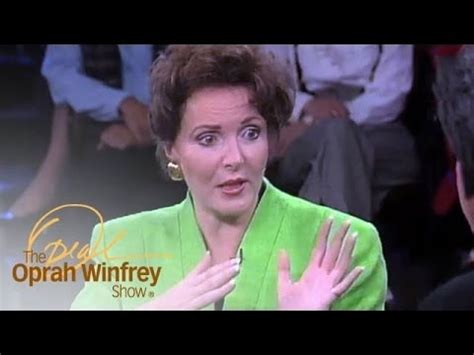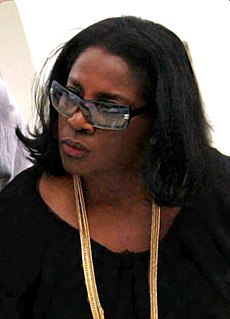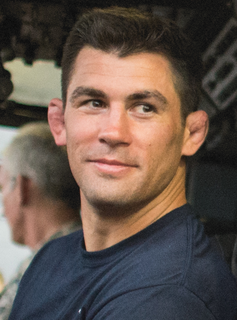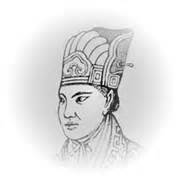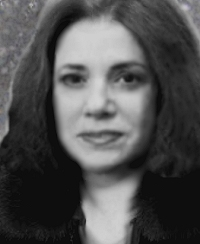Top 1200 Deceiving Ourselves Quotes & Sayings - Page 18
Explore popular Deceiving Ourselves quotes.
Last updated on April 19, 2025.
The body stores the trauma of our lives in muscular rigidity, thereby keeping us stuck in the past. When we release the tension in the body and align ourselves with gravity, we take a new stand in life. This allows us to be at ease with ourselves and in harmony in our relationship to others and to our planet.
I think we communicate only too well, in our silence, in what is unsaid, and that what takes place is a continual evasion, desperate rearguard attempts to keep ourselves to ourselves. Communication is too alarming. To enter into someone else's life is too frightening. To disclose to others the poverty within us is too fearsome a possibility.
We want to see ourselves - but differently. We want to see these dream versions of ourselves. We want to be surprised; we want to be entertained. I think primarily, especially in this country, we ask that movies entertain us, which seems to be something they're less and less likely to do on a continual basis.
We are rarely able to interact only with folks like ourselves, who think as we do. No matter how much some of us deny this reality and long for the safety and familiarity of sameness, inclusive ways of knowing and living offer us the only true way to emancipate ourselves from the divisions that limit our minds and imaginations.
To set us on a clear path, it is important to communicate well, at least with ourselves. To know what we want, to know what we mean, and to learn to express ourselves clearly, with as little confusion as possible. If you are confused about yourself, you can expect to be misunderstood by those around you. You have to set your mind straight, and that is a task that no one else can undertake for you.
We feel the urge to tell the truth as we see it. But we should try to accomplish this without judgemental condemnations that hurt others. Again, when we remember that what we perceive in another is a reflection of ourselves, we become less judgemental. So when we freely express harsh judgement of another, we are in effect talking about those aspects of ourselves that trouble us the most.
Now we really like to put people in boxes. As men, we do it because we don't understand characters that aren't ourselves and we aren't willing to put ourselves in the skin of those characters and women, I think, terrify us. We tend not to write women as human beings. It's cartoons we're making now. And that's a shame.
We do not choose political freedom because it promises us this or that. We choose it because it makes possible the only dignified form of human coexistence, the only form in which we can be fully responsible for ourselves. Whether we realize its possibilities depends on all kinds of things — and above all on ourselves.
The stories we tell ourselves about ourselves are very often not really what happened. And as I started to write stuff down, I started to challenge what I thought I knew about myself, my culture, my family, all of it. It was a huge, destroying process that completely took over my life. I just wasn't here, I mean I was physically present, but I wasn't here, I was back in the 1980s.
In America, the stories we tell ourselves and we tell each other in fiction have to do with individualism. Every person here is the center of his or her own story. And our job as people and as characters is to find our own motivations and desires, to overcome conflicts and obstacles toward defining ourselves so that we grow and change.
I think the biggest thing to being an elite-level bobsledder is grit. You have to really want it. It's a very blue-collar sport. We do a lot of the work ourselves; we sand the runners, we wash the sled, we help maintain the sled. Obviously, we have a sled mechanic that travels with us, but a lot of the work we do ourselves.
The image of Earth from space transformed our view of ourselves. It is maybe the most important image that exists - because we can see ourselves in context in a way that otherwise would be really hard to explain. It should inspire us to wonder about it, to want to know everything we can about it and do everything we can to take care of it.
Lao Tzu says: "Accept yourself. Non-acceptance is the root of all the trouble." None of us accept ourselves. The more a person doesn't accept himself, the greater a mahatma he looks to others to be. We are our greatest enemy. If we had our way, we would cut ourselves to pieces in order to remove what was unacceptable.
He[Michael Jackson] had a joy in being alive. There was a joy you felt of him on the stage and making us not just feel good but pushing us against ourselves with the "Man in the Mirror," looking at ourselves critically, "Black or White," what does it mean to get caught in a color as opposed to a rich history and culture?
Almost everywhere we find . . . the use of various coercive measures, to rid ourselves as quickly as possible of the child withinus--i.e., the weak, helpless, dependent creature--in order to become an independent competent adult deserving of respect. When we reencounter this creature in our children, we persecute it with the same measures once used in ourselves.
I think we are here to challenge ourselves and make ourselves better people and not just sit around in the world simply floating through life. You should be trying to do something great and making yourself better. You should be trying to evolve. That's what I'm trying to do, and that is very important to me.
Celebration... is self restraint, is attentiveness, is questioning, is meditating, is awaiting, is the step over into the more wakeful glimpse of the wonder - the wonder that a world is worlding around us at all, that there are beings rather than nothing, that things are and we ourselves are in their midst, that we ourselves are and yet barely know who we are, and barely know that we do not know all this.
I know you'll probably get angry with me for that, shout, stamp your feet: "speak just for yourself and your miseries in the underground, and don't go saying 'we all.'" Excuse me, gentleman, but I am not justifying myself with this allishness. As far as I myself am concerned, I have merely carried to an extreme in my life what you have not dared to carry even halfway, and, what's more, you've taken your cowardice for good sense, and found comfort in thus deceiving yourselves. So that I, perhaps, come out even more "living" than you.
You know, that man has a spirit, that each man and woman is unique, that we have duty to promote our unalienable rights and to protect them, that we have a duty to our families and ourselves, to take care of ourselves, to contribute to charity, that we have a duty to support a just and righteous law that is stable and predictable.
The more we have given to ourselves, the more we have to give to others. When we find that place within ourselves that is giving, we begin to create an outward flow. Giving to others comes not from a sense of sacrifice, self-righteousness, or spirituality, but for the pure pleasure of it, because it's fun. Giving can only come from a full, loving space.
People compose the schedules they do out of the priorities they have; and someone who says otherwise is deceiving himself about what he really values. The same thing applies to money that applies to time. I make a practice of watching what people do, never what they say. Whatever is important, to anyone sane, he will make a place for it; people live out their values. Values are different in this respect from "ideals," which are typically vain and effete and thus exist mostly for the sake of promoting self-delusions.
Today, the biggest challenge we must meet is the one we present to ourselves. To not become a nation that places entitlement ahead of accomplishment. To not become a country that places comfortable lies ahead of difficult truths. To not become a people that thinks so little of ourselves that we demand no sacrifice from each other.
've always defined a truly alluring story as a journey we're not equipped to take ourselves with a person we're tempted but afraid to emulate. Impostor narratives are exactly that. When they end in disaster, as Clark's did, or as Gatsby's did, we can congratulate ourselves for our own wisdom. We can also experience, safely, at no cost, the terrible thrill of radical self-invention, of trading who we are for who we might be.
We insist on being Someone, with a capital S. We get security from defining ourselves as worthless or worthy, superior or inferior. We waste precious time exaggerating or romanticizing or belittling ourselves with a complacent surety that yes, that’s who we are. We mistake the openness of our being—the inherent wonder and surprise of each moment—for a solid, irrefutable self. Because of this misunderstanding, we suffer.
It is only when we begin to relax with ourselves that meditation becomes a transformative process. Only when we relate with ourselves without moralizing, without harshness, without deception, can we let go of harmful patterns. Without maitri (metta), renunciation of old habits becomes abusive. This is an important point.
We are responsible for what we are, and whatever we wish ourselves to be, we have the power to make ourselves. If what we are now has been the result of our own past actions, it certainly follows that whatever we wish to be in the future can be produced by our present actions; so we have to know how to act.
?"Magic is the first and last religion of the world. It has the power to make us whole, to open our eyes to the Dominions and return us to ourselves. Everything that isn't us is also ourselves. We're joined to everything that was, is and will be. From one end of the Imajica to another. From the tiniest mote dancing over this flame to the Godhead Itself.
I think this is what people misunderstand about Martin Luther King saying to love your enemies. They think he was just using this silly little phrase, but what he meant was that as Black Americans we need to let our anger go, because holding on to it we hold ourselves down. We oppress ourselves by holding on to anger.
The search for the purpose of life has puzzled people for thousands of years. That’s because we typically begin at the wrong starting point—ourselves. We ask self-centered questions like What do I want to be? What should I do with my life? What are my goals, my ambitions, my dreams for my future? But focusing on ourselves will never reveal our life’s purpose.
We like to look for patterns and find connections in unrelated events. This way we can explain them to ourselves. Life seems neater, or at least less messy. We need to feel we are in control: it is integral to our self-esteem. We also know, though we deny it, that we are not in control. So we settle for the illusions of control. What if we stopped fooling ourselves?
But when we borrow trouble, and look forward into the future to see what storms are coming, and distress ourselves before they come as to how we shall avert them if they ever do come, we lose our proper trustfulness in God. When we torment ourselves with imaginary dangers, or trials, or reverses, we have already parted with that perfect love which casteth out fear.







